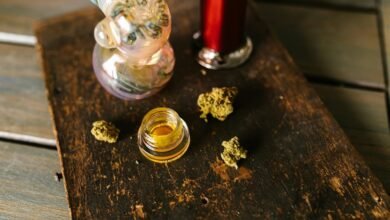Is Cbd Oil Legal in Pennsylvania

The legality of CBD oil in Pennsylvania has evolved significantly since the Medical Marijuana Act was enacted in 2016. This legislation created a framework for the sale of hemp-derived products, including various types of CBD oil. However, the nuances of THC content and local regulations can complicate matters. Understanding these factors is crucial for consumers considering CBD oil. What should individuals know to navigate this complex landscape effectively?
Overview of CBD Oil Legislation in Pennsylvania
How has the legal landscape for CBD oil evolved in Pennsylvania?
The state's regulations surrounding CBD oil have progressed significantly since its initial legal recognition in the 2016 Medical Marijuana Act. This legislation marked a pivotal moment in CBD oil history, leading to the establishment of a regulated market.
Current state regulations now permit the sale of hemp-derived CBD oil, reflecting a growing acceptance of its benefits.
Types of CBD Oil and Their Legal Status
While the legal landscape for CBD oil in Pennsylvania has evolved, the types of CBD oil available in the market vary significantly in terms of their composition and legal status.
Full spectrum options contain a range of cannabinoids, including trace amounts of THC, while isolate varieties consist solely of CBD.
These distinctions influence both legality and consumer choice within the state.
Guidelines for Purchasing and Using CBD Oil
Navigating the purchase and use of CBD oil in Pennsylvania requires careful consideration of several guidelines to ensure compliance with state laws and product quality.
Consumers should prioritize CBD oil quality by selecting products that undergo third-party testing.
Additionally, understanding appropriate CBD oil dosage is essential for effective use, allowing individuals to achieve desired effects while minimizing potential side effects.
Potential Legal Risks and Considerations
Despite the growing acceptance of CBD oil, potential legal risks and considerations remain important for consumers in Pennsylvania.
Legal implications can arise from purchasing unregulated products or misunderstanding state laws. Consumers bear the responsibility to ensure compliance with local regulations, including verifying the THC content and sourcing.
Awareness of these factors is crucial for navigating the evolving legal landscape surrounding CBD oil.
Conclusion
In the intricate landscape of Pennsylvania's CBD oil legislation, consumers must navigate the labyrinth of legal parameters with caution. While the Medical Marijuana Act paves the way for accessible hemp-derived products, the nuances of THC content and product composition create a complex tapestry of compliance. As individuals seek the potential benefits of CBD oil, awareness of local regulations becomes paramount, ensuring a journey through this evolving market remains both enlightening and legally sound.






